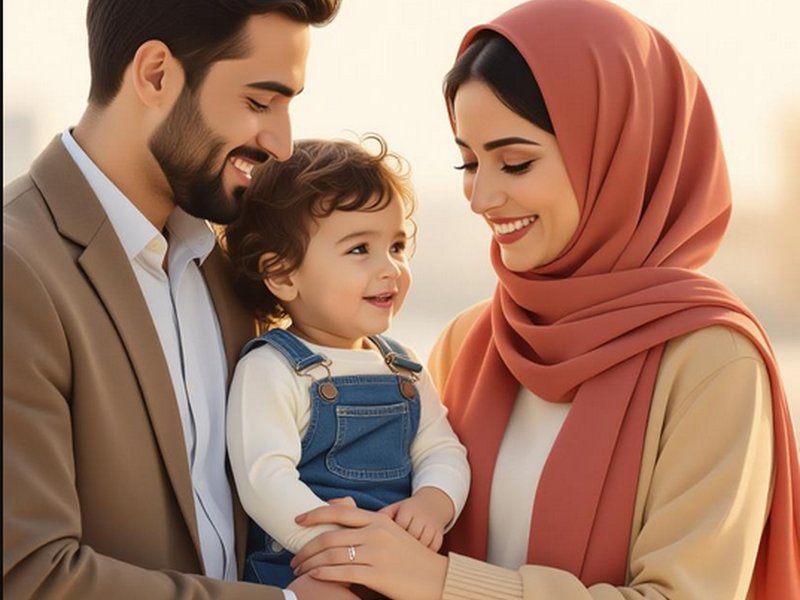Adoption in Iran: Does Guardianship Create Inheritance Rights and Sharia Mahram Status?
In the realm of family law in Iran, adoption (or guardianship - فرزندخوانندگی) remains a vital mechanism for supporting orphaned or vulnerable children. Governed by the Law on Protection of Children and Adolescents Without Guardians or with Inadequate Guardianship (2013), this process prioritizes child welfare without establishing blood ties. But a common question arises: Does adopting a child in Iran grant them inheritance rights or make them a Sharia mahram (a relative with whom marriage is forbidden under Islamic law)? This comprehensive legal guide breaks it down, drawing on expert insights to clarify the rules, conditions, and implications for prospective guardians.
Understanding Guardianship vs. Traditional Adoption in Iran
Unlike Western adoption models that often sever ties with biological parents and create full legal heirs, Iran's system emphasizes temporary guardianship (serparasti). This approach aligns with Islamic principles, ensuring no permanent familial bonds like inheritance or mahram status are formed. The goal? To provide stable care for children under 16 who lack parental support, without altering their religious or legal lineage.
Key highlights from the law:
Eligible Children: Minors under 16 (or up to 18 if deemed necessary) who are orphaned, abandoned, or from unfit families.
No Automatic Family Ties: Guardianship does not confer inheritance (warith) rights or Sharia mahram prohibitions on marriage.
Conditions for Adopting a Child in Iran: Who Can Apply?
Prospective guardians must meet stringent criteria to ensure the child's best interests. According to legal expert Amin Fallahnejad, a senior attorney, the process is rigorous to prevent exploitation.
Basic Requirements (Article 5 of the Law)
|
Category |
Details |
|---|---|
|
Marital Status |
Married couples married for at least 5 years without children; or those with children if age-eligible. Single/divorced/widowed women (30+ years) can only adopt girls. |
|
Age Limits |
At least one applicant must be 30+; no upper limit, but under 50 preferred for priority. |
|
General Fitness |
Moral, financial, physical, and mental health; no criminal record; adherence to official religions; addiction-free. Verified by Welfare Organization and courts. |
|
Child Limit |
Maximum 2 children per guardian, unless siblings from the same family. |
Priority Ranking:
Childless married couples.
Single women without children (girls only).
Couples with existing children.
Applicants under 50 years old.
Those who have already bonded with a specific child (proven via evidence).
These rules ensure adoption in Iran supports family growth while safeguarding vulnerable kids.
The Legal Process: Step-by-Step Guide to Guardianship
Securing guardianship involves a multi-stage evaluation:
Application: Submit to the State Welfare Organization (Behzisti).
Assessment: Welfare experts review within 2 months and report to family court.
Provisional Order: Court issues a 6-month trial period.
Finalization: Guardians must transfer a portion of assets or rights to the child (amount set by court). No inheritance or mahram ties are created here.
If a guardian remarries, the new spouse's details must be disclosed, with court approval required for continuation. Revocation occurs for misconduct, loss of eligibility, or parental reclamation.
Inheritance Rights in Iranian Adoption: No Automatic Heirship
A critical myth-buster: Guardianship does not make the child an heir. Under Iranian civil law and Sharia, only blood relatives inherit. The asset transfer in finalization is a one-time goodwill gesture, not ongoing entitlement. This preserves the child's potential claims from biological kin.
Sharia Mahram Status: Marriage Prohibitions in Adoption
Does an adopted child become a mahram to the guardian, forbidding marriage? The answer is no—guardianship creates no Sharia mahram relationship. Marriage between guardian and adoptee is fundamentally prohibited to protect the child's welfare. However, in exceptional cases, if the court and Welfare Organization deem it in the child's best interest post-maturity, an exception may be granted.
Expert quote: "Between the guardian and the child under guardianship, no inheritance relationship or Sharia/legal marriage prohibition is established."
Challenges and Reforms in Iran's Adoption System
While effective, the system faces hurdles like lengthy processes and cultural stigmas. Recent discussions advocate for expansions, such as easing limits for single parents, to boost orphan adoption rates in Iran. Families are encouraged to consult lawyers for personalized advice.
Conclusion: Empowering Families Through Informed Guardianship
Iran's adoption laws balance compassion with legal precision, offering hope without false promises of inheritance or eternal bonds.

Comments (0)
No comments yet. Be the first to comment!